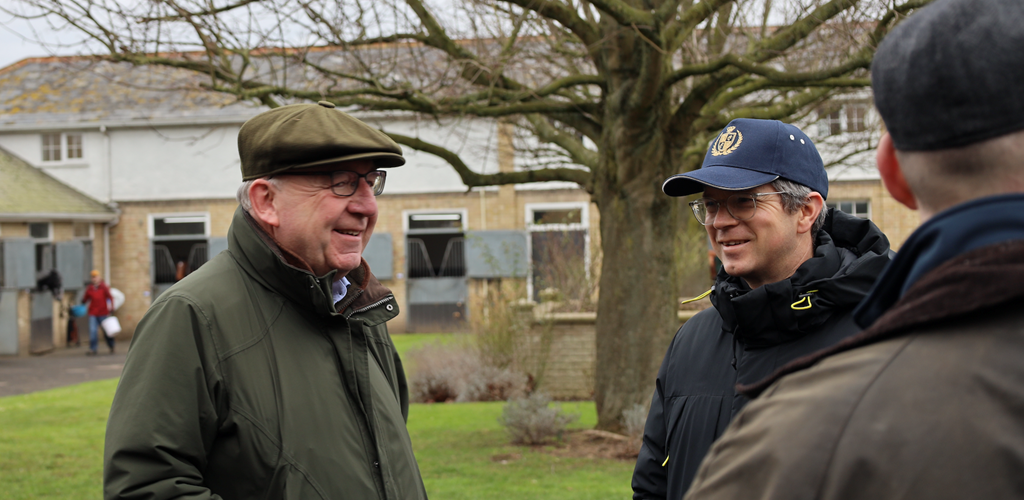
The Derby - By Cornelius Lysaght
Two Derbys take place twenty miles apart this weekend, one rather older than the other, but both inextricably linked by history.
At Epsom it’s the 244th staging of the Classic horse race that has spawned imitations all around the globe, from Kentucky in the US to Meydan in Dubai to Randwick in Sydney, and on top of that has generated a sporting heritage that stretches perhaps even further, which is where the FA Cup Final – at a ‘mere’ 142 years of age – comes in.
Because at Wembley, for the first time a Manchester Derby will decide the outcome as arch rivals City and United chase success in football’s oldest cup competition – though, but for the toss of a gold sovereign at a party of aristocrats after the first running of Epsom’s Oaks in 1779, they could theoretically be clashing in a Manchester ‘Bunbury’.
The way that coin spun through the air and fell determined whether a new race, primarily for three-year-old colts the next year, would be named in honour of the evening’s host, the 12th Earl of Derby, or his guest of honour, Sir Charles Bunbury (after whom the Bunbury Cup at Newmarket’s July Festival was titled).
Such was the profile of the new trophy in those early years that any significant sporting occasion at the time might be deemed ‘a Derby’, not least the often bloody rugby league encounter between bitter opponents St Helens and Wigan that took place at the Earl’s estate just outside Liverpool, an event which is seen by historians as the original ‘local’ Derby.
In 2023 the Cup Final may have top billing, with racing’s Betfred-sponsored feature being moved to a 1-30 slot to ensure it’s done and dusted before the final countdown to kick-off at Wembley is underway, but no VAR would be needed to check the assertion that the football has been a positive also-ran in comparison in terms of sensational drama and spectacular colour over the centuries.
Since Diomed, owned by Bunbury, was successful in that first running in 1780, all kinds of skulduggery has been associated with the race, notably in 1844 when the result was not confirmed until the completion of a court case six weeks after the runners had passed the finishing line at which it was concluded that the first horse home, Running Rein, was in fact a four-year-old ringer.
More tragically, a suffragette protester Emily Davison died after being trampled by Anmer, a runner owned by the new King’s great-grandfather George V, after seemingly jumping in front of the field at Tattenham Corner in 1913.
The late Lester Piggott has been the race’s most successful jockey – nine (the first when aged 18 on Never Say Die in 1954, the last on Teenoso 29 years later) – but during the more modern era no rider has grabbed as many Epsom headlines as Frankie Dettori, who is insisting that the 2023 Derby is his final one before retirement, even if speculation concerning a possible change of heart refuses to go away.
Although without quite the longevity of Piggott, Dettori, 52, is not many lengths behind and the John and Thady Gosden-trained Arrest is due to be his twenty-eighth mount in the race in which he has recorded victories on Authorized (2007, at the fifteenth attempt) and eight years later on the brilliant Golden Horn. The Oaks, in which the Italian’s scheduled to be on Soul Sister, has gone his way six times from twenty-six starts.
The Derby has a strikingly open look to it: as well as Arrest, Irish challengers Auguste Rodin, Sprewell, White Birch and Alder are all more than plausible contenders, as is Military Order for Godolphin, the late entry Passenger, trained by Sir Michael Stoute, Dubai Mile for the new Charlie Johnston training operation and The Foxes, a colt owned like relegated Leicester City by the Srivaddhanaprabha family.
For all the talk of rail strikes and animal rights protests it promises to be a thriller – and if Dettori does do it again, in probably his final season, I have to tell Erling Haaland and co. at Wembley they may find their warm-ups disrupted by a somewhat Arrest-ing roar from twenty miles down the road at Epsom.

